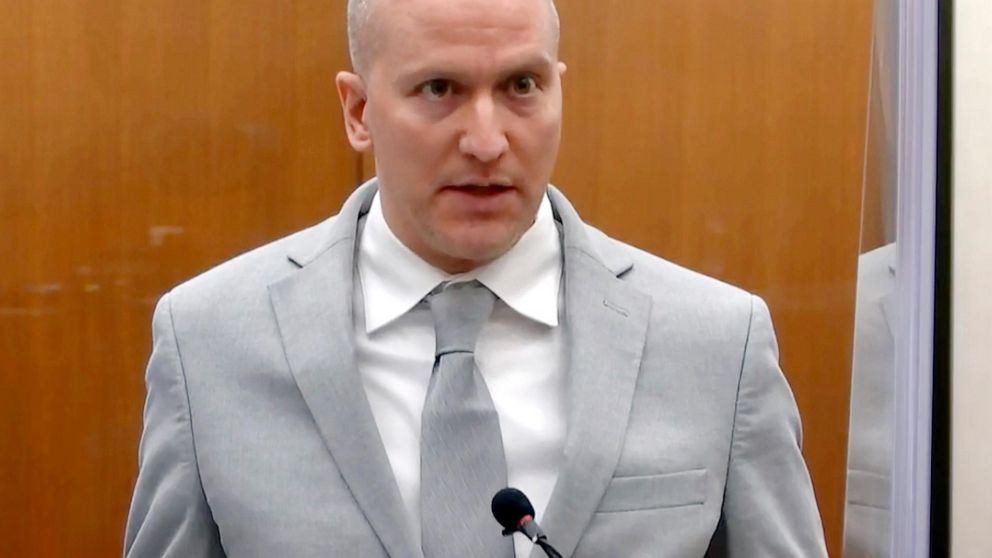MINNEAPOLIS — The former Minneapolis police officer convicted in the 2020 killing of George Floyd pleaded guilty Friday to two tax evasion counts, admitting that he didn’t file Minnesota income taxes for two years due to “financial concerns.”
Derek Chauvin pleaded guilty specifically to two counts of aiding and abetting, failing to file tax returns to the state of Minnesota for the 2016 and 2017 tax years.
Chauvin appeared in a Minnesota court via Zoom from a federal prison in Tucson, Arizona, where he is serving his sentences on a state murder conviction for killing Floyd and on a federal count of violating Floyd’s civil rights.
He stood in a room and paced around before Friday’s hearing began. When Washington County Judge Sheridan Hawley asked why he didn’t file his Minnesota tax returns, he told the judge: “The true reason is some financial concerns at the time.”
He also said: “I had to find significant funds from family to pay a previous year’s return and, frankly, I’ve been playing catch up ever since.”
He was sentenced to 13 months in prison on the tax charges, but he has already been incarcerated for longer than that and was given credit for time served.
Floyd died May 25, 2020, after Chauvin, who is white, pressed his knee against the Black man’s neck for more than nine minutes. Floyd, who was handcuffed, repeatedly said he couldn’t breathe. The killing, which was recorded on video by a bystander, sparked worldwide protests as part of a broader reckoning over racial injustice.
Shortly after Floyd’s killing, Chauvin and his then-wife were charged with multiple counts for allegedly underreporting their income to the state of Minnesota and failing to file Minnesota tax returns. The complaints alleged that from 2014 to 2019, the Chauvins underreported their joint income by $464,433.
With unpaid taxes, interest and fees, the Chauvins, who have since divorced, owe $37,868 to the state, according to court documents.
The tax investigation began in June 2020, after the Minnesota Department of Revenue received information about suspicious filings by Derek Chauvin. The agency started an internal cursory review and then opened a formal investigation.
The probe ultimately found the Chauvins did not file state tax returns for 2016, 2017 or 2018, and did not report all of their income for 2014 and 2015. When tax returns for 2016 through 2019 were filed in June 2020, the Chauvins did not report all of their income in those years either, the…
Click Here to Read the Full Original Article at ABC News: US…

